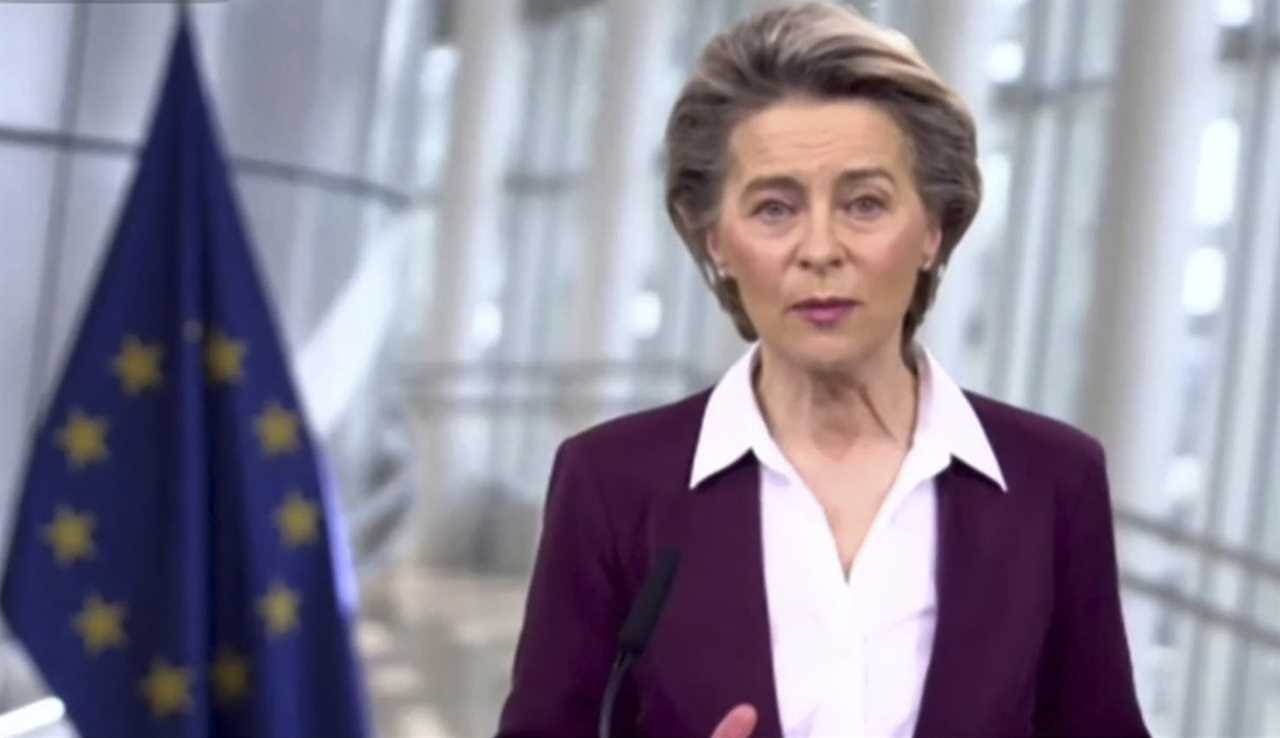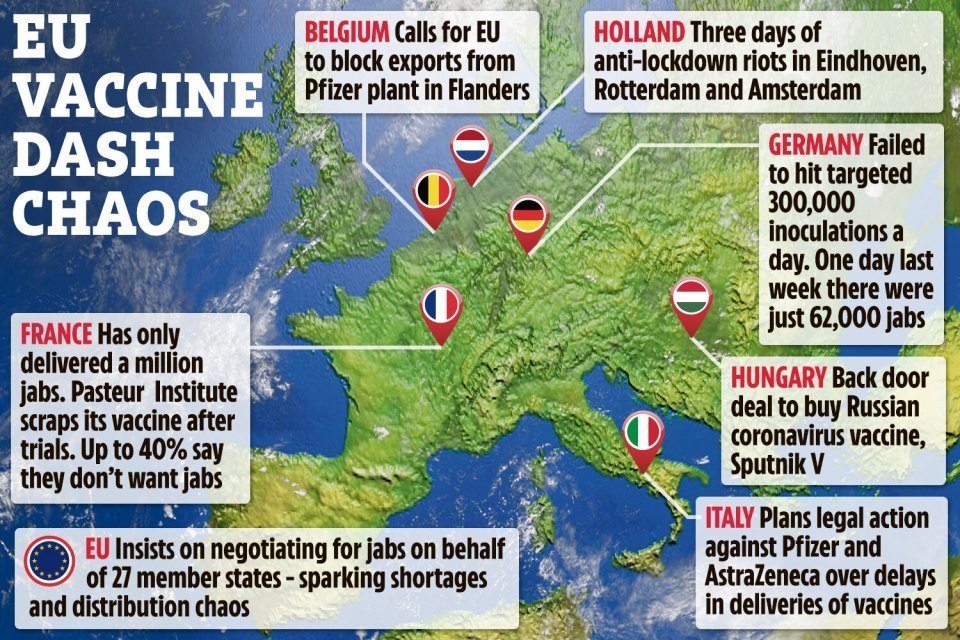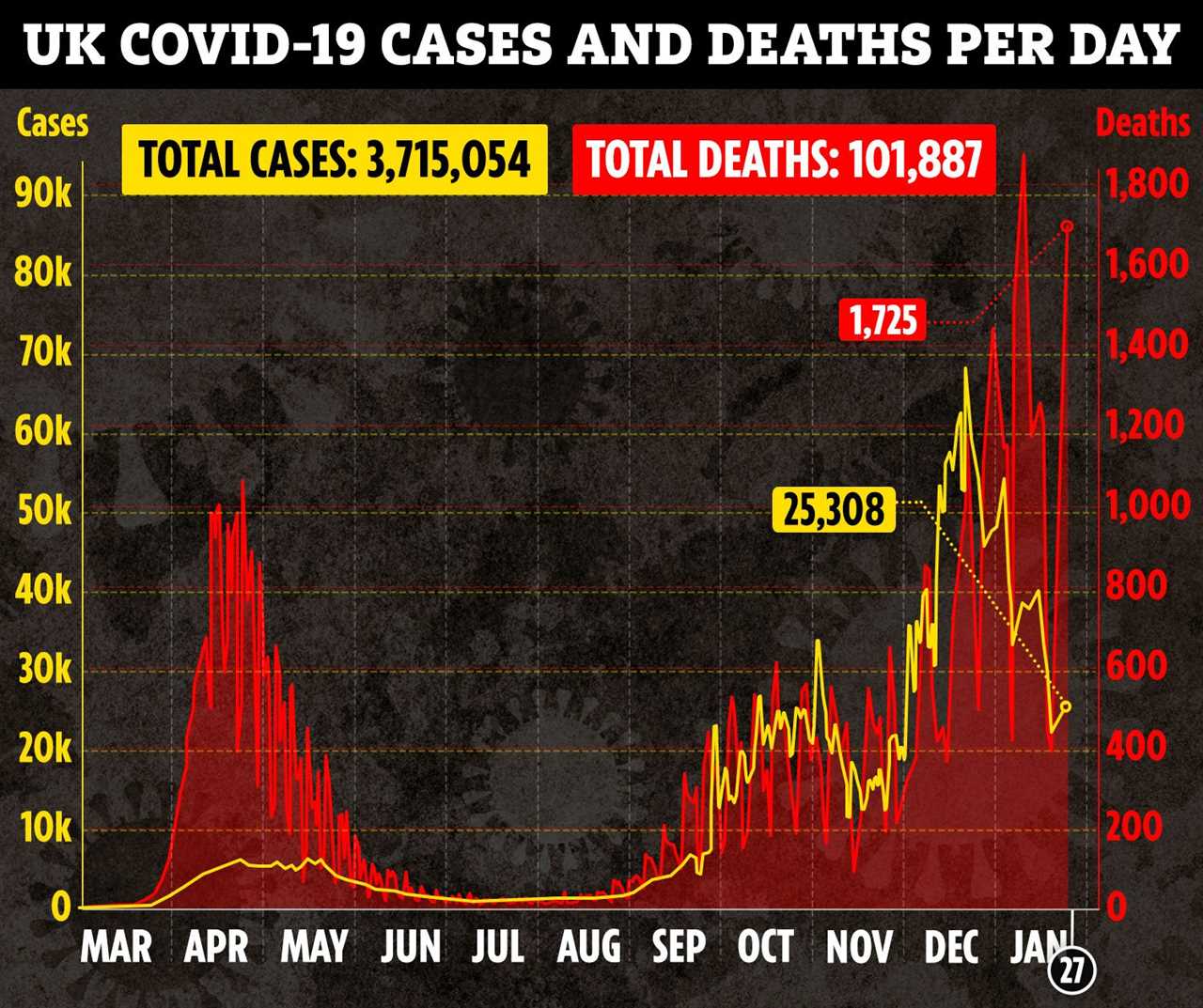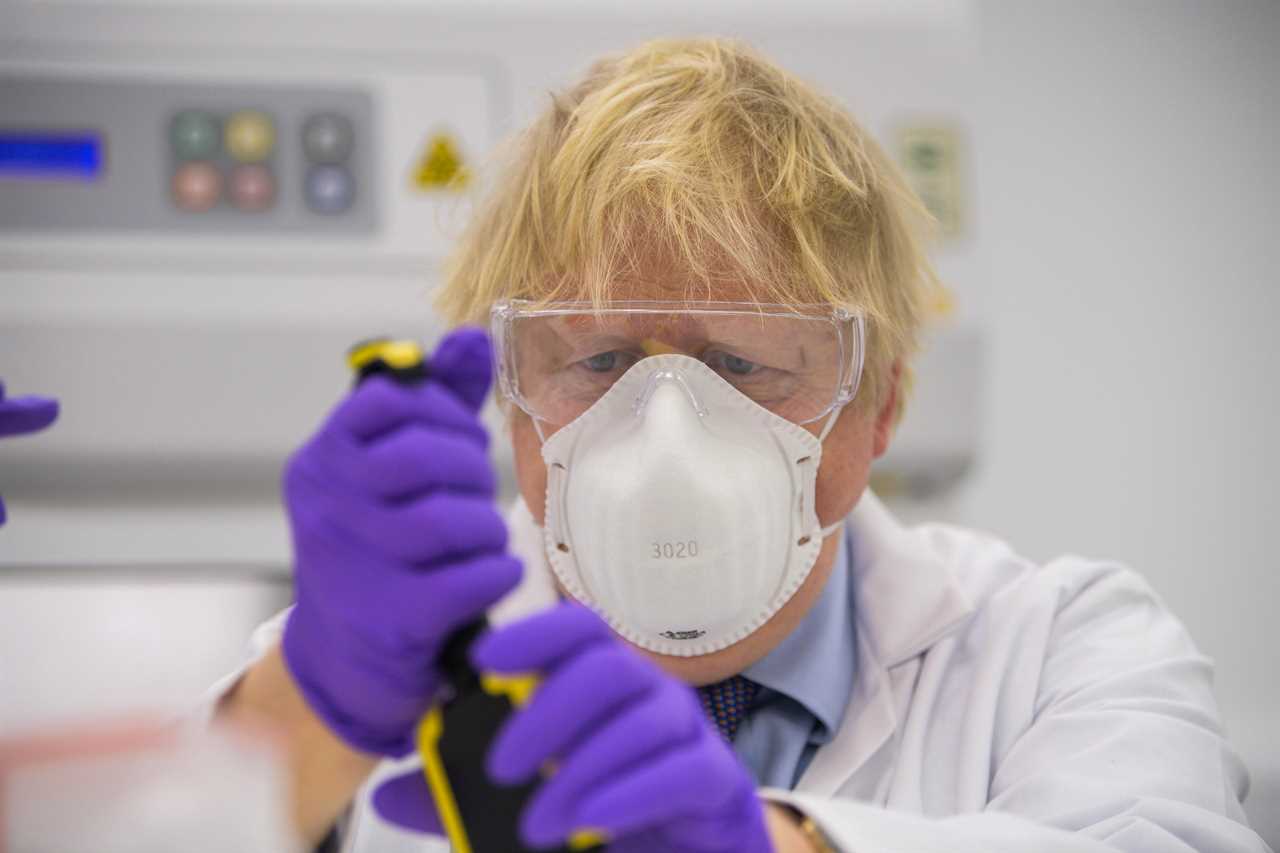BRUSSELS will this morning unveil its coronavirus export ban that could stop millions of jabs from reaching Britain – as EU boss Ursula von der Leyen upped her public war of words with AstraZeneca.
The EU Commission will formally announce its blocking procedure after Belgium, where the Pfizer jab is made, already jumped the gun by drawing up its own national powers to shut down exports.

Read our coronavirus live blog for the latest news & updates


Chief eurocrat Mrs von der Leyen accused AZ of misrepresenting its contract with the bloc and ordered the firm to find up to an extra 50 million doses for the continent from Britain.
She told German radio: “In the contracts, two production facilities in Great Britain are also mentioned, which are intended for the production of the vaccine for the EU. How you manage it is up to you.
“There are binding orders and the contract is crystal clear. The phrase ‘best effort’ does not exist. There are clear delivery quantities that are in the contract.
“What irritated us was that, unlike the other companies, AstraZeneca very suddenly announced that it was drastically reducing its agreed deliveries for the first quarter and did not provide understandable reasons why. Now we want clarity on that.”
Eurocrats have tried to play down the likelihood of millions of Pfizer doses being stopped from reaching Britain, insisting the system is designed to monitor exports and they will only intervene in “rare cases”.
But one well-placed EU source told Trending In The News: “It’s not a monitoring system, it’s a blocking mechanism.”
It comes as
- Britain was handed a major boost by the news the Novavax jab has proved effective
- A medical chief said future vaccines could come in pill, patch, and nasal spray form
- It was warned pubs and restaurants won’t reopen until May
Under the plan customs authorities in EU countries will have to notify the Commission every time jabs are being sent to the UK – allowing them to keep an eye on our supplies.
The move is a huge ramp up in the ongoing vaccine war of words between Britain and the EU over access to vaccines – as Brussels continues to lag far behind the UK’s rollout.
An EU official said earlier that they would have the power to block experts, saying: “There is a possibility in certain circumstances not to allow the export to move forward.
“We want to ensure we have a say about where these vaccines are ending up in a situation where we are now in a shortfall of supply.”
Pfizer has announced a shortfall in production at its Belgian plant, where jabs destined for Britain are made.


Member States are fighting to take the toughest possible line to get their hands on any extra supplies after facing furious criticism for their slow rollouts.
The official said: “If the batch is refused naturally it would stay in Europe and distribution would happen according to the plan.”
For now the new controls only apply to completed vaccines, but eurocrats said they could be widened to cover the ingredients that go into making them too.
The move comes amid a growing row between Britain and the EU over the efficacy of the AstraZeneca vaccine in over-65s.
Germany’s health ministry has recommended the jab shouldn’t be given to under 65s because there’s “insufficient data” to prove it works in that age group.
The European Medicines Agency is set to rule on the matter today, and could follow Berlin’s lead.
But Boris Johnson has hit back – insisting the vaccine is perfectly safe for older people.
He said tonight that the Oxford jab “is a good vaccine and so I’m very confident about it”.
He added: “The evidence that they’ve supplied is that they think that it is effective across all age groups. It provides them a good immune response across all age groups, so I don’t agree with [the German decision].”
It came after Brussels ordered a spot-check on AstraZeneca’s factory in Belgium on Thursday night to check it isn’t lying about delays to production- as eurocrats’ feud with the drugs giant grows ever more bitter.
The EU Commission sent in inspectors from the Belgian medicines agency into the plant amid an increasingly fractious row over Europe’s stuttering jabs rollout.
Its extraordinary move was confirmed in a statement by the office of Belgium’s health minister Frank Vandenbroucke, which said it was “to make sure that the delivery delay is indeed due to a production problem”.
Belgian experts were joined by colleagues from the Netherlands, Italy, and Spain on the raid and will then draw up a report which is set to be released within “a few days”.






